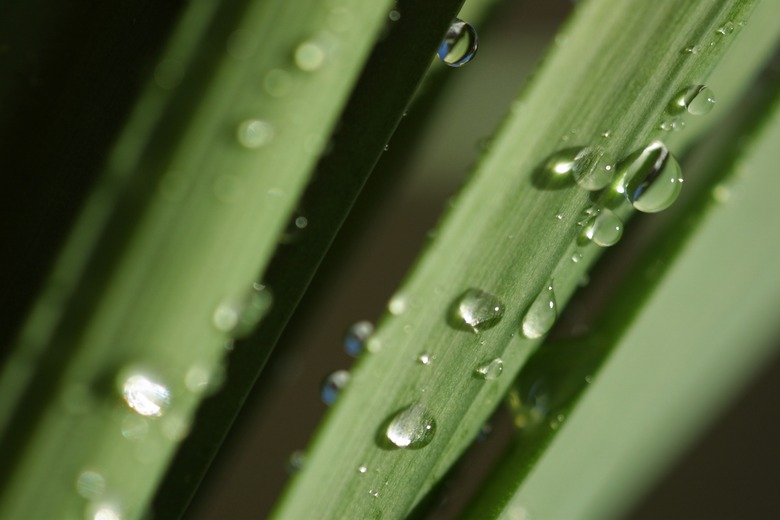Do Winds Affect The Dew Point?
Your daily weather report includes a lot of information, high and low temperatures, wind speeds and direction, how much and what type of precipitation you may get, as well as more esoteric measures such as dew point, relative humidity, heat indices and wind chills. Each of these pieces of information tells you something about the day ahead, but it can be less clear how the individual elements of weather interact. So, do winds affect the dew point? Not really, but the two can sometimes be correlated.
What is a Dew Point?
What is a Dew Point?
The dew point is the temperature at which the water vapor suspended in the air can no longer be held and condenses on surfaces. The temperature tends to drop to the dew point overnight and the water condenses on grass and plants, forming dew. It can also be thought of as the temperature where the relative humidity is 100 percent. Higher dew points mean that the air is more saturated, making cooling yourself by sweating difficult and you uncomfortable. Low dew points can also be uncomfortable because your body loses water easily to the very dry air, causing your skin, sinuses and eyes to dry out.
Factors Affecting Dew Point
Factors Affecting Dew Point
Dew points are a way to measure of the amount of moisture in the air, even though they are expressed as a temperature. A similar measure is relative humidity, which is the amount of moisture in the air divided by how much moisture the air can hold. Dew points, unlike relative humidity, are not dependent on temperature, making them a more absolute measure of the water in the air. The dew point also changes with changing pressure, but the small changes in pressure from weather systems or altitude do not have a large impact. Wind does not directly affect either moisture content or pressure.
You May Not See Dew on Windy Mornings
You May Not See Dew on Windy Mornings
While wind doesn't impact the dew point, it may impact whether you see dew. If the temperature drops to the dew point at night, dew will condense on surfaces. The dew stays there until it runs off in droplets or evaporates again. Wind blowing across a wet surface will speed the evaporation process by moving saturated air away from the wet surface. So, if temperatures warms to slightly above the dew point, wind will dry the dew almost as soon as it has formed.
The Relationship Between Windy Weather and Dew Point
The Relationship Between Windy Weather and Dew Point
You may notice that sometimes the dew point does change after a windy day. This isn't because the wind caused the change, it is related to the weather phenomena that caused the wind. Wind is caused by air moving from an area of high pressure to an area of low pressure. The most common time to see wind is when a weather front moves through your area. If the system coming through is wetter or drier than the air that was already in your area, the dew point will change, but it is the pressure system and not the wind that causes the change.
Cite This Article
MLA
Becker, Andrea. "Do Winds Affect The Dew Point?" sciencing.com, https://www.sciencing.com/winds-affect-dew-point-24081/. 24 April 2017.
APA
Becker, Andrea. (2017, April 24). Do Winds Affect The Dew Point?. sciencing.com. Retrieved from https://www.sciencing.com/winds-affect-dew-point-24081/
Chicago
Becker, Andrea. Do Winds Affect The Dew Point? last modified March 24, 2022. https://www.sciencing.com/winds-affect-dew-point-24081/
